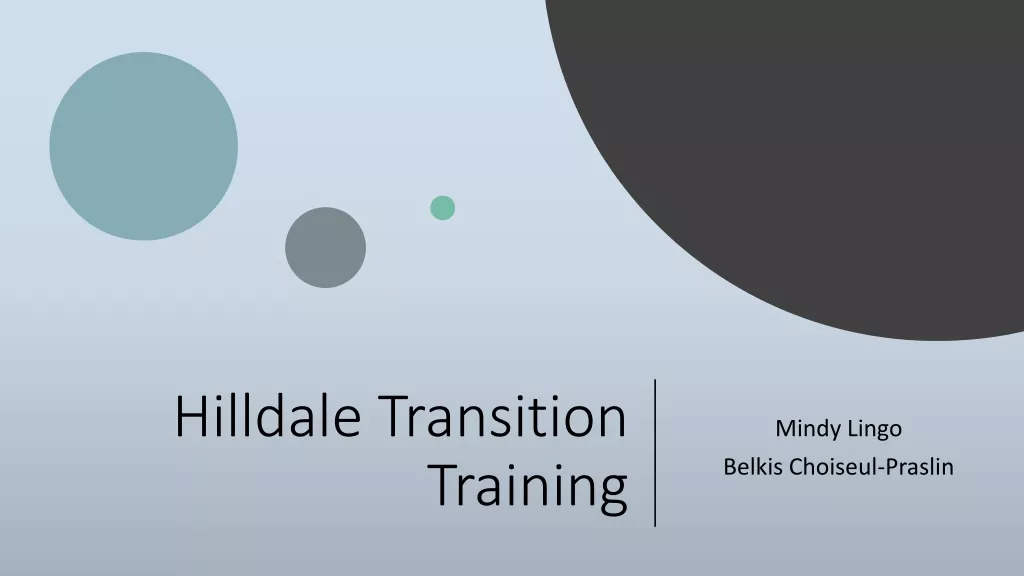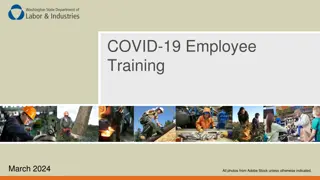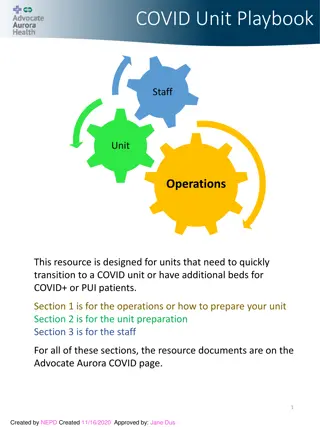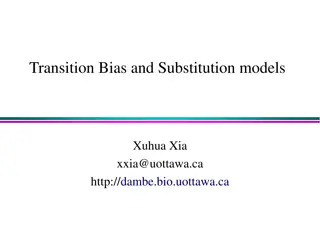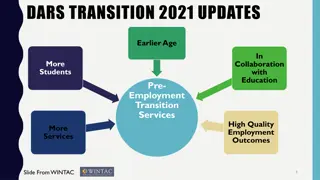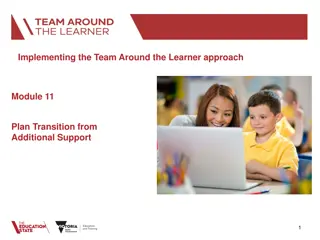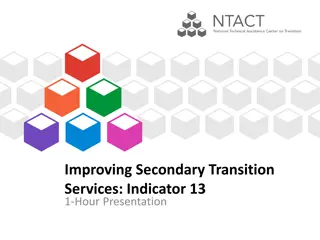ULAB's Transition to Full Online Teaching Amidst COVID-19
ULAB, a private liberal arts university in Bangladesh, shifted to online teaching on March 16, 2020, due to the COVID-19 outbreak. The faculty underwent training to establish online teaching strategies, including assigning assignments and exams. The university focused on motivating students, gathering feedback, and collaborating with Coursera for webinars to ensure academic continuity.
Download Presentation

Please find below an Image/Link to download the presentation.
The content on the website is provided AS IS for your information and personal use only. It may not be sold, licensed, or shared on other websites without obtaining consent from the author. Download presentation by click this link. If you encounter any issues during the download, it is possible that the publisher has removed the file from their server.
E N D
Presentation Transcript
Shifting to Full Online Teaching: The ULAB Experience Countering COVID-19
On 16 March 2020, amidst fears related to the coronavirus outbreak, the Bangladesh government issued a directive decreeing all educational institutions to close from 18 to 31 March. Later, in the wake of an increasing number of deaths and confirmed infections, the school closure extended- first from 31 March to 9 April, again from 9 to 25 April and it is continuing. Preamble To minimize possible academic losses, the University Grants Commission (UGC) declared on 23 March that all universities introduce online education to run academic activities.
University of Liberal Arts Bangladesh (ULAB) ULAB is a private liberal arts-based University founded in 2002. The university currently has about 5000 students under four schools- -School of Business -School of Arts and Humanities -School of Social Science and -School of Science and Engineering. The university has 187 full-time and 155 part-time faculty members. More than one-third of its full-time faculty have doctorate degrees.
Date shifted to online learning: March 16 2020 Shifting When the university was in the first half of the term with the mid-term period scheduled to take place in the last week of March
Instruct and prepare Faculty members Establish online teaching and assessment strategies Platforms to be used Preparation For Teaching Online Form a line of communication Motivate Students Feedback from Students and Faculty members Collaboration with Coursera and Conducting Webinars
Under the direct supervision of the Vice Chancellor, trainingwas arranged for faculty members Instruct and prepare Faculty members The authorities also instructed faculty to give assignments, written take home exams and viva voce exams in lieu of synchronous online written examinations Advised to Innovate And Stimulate Discussions by posting lectures, to assigning reading material, to monitoring progress
The authorities had to think of online teaching and assessment strategies given the levels of Internet accessibility of its students. Establish online teaching and assessment strategies Based on a recent survey administered by the university s Student Affairs Office (SAO), 60% of the students had reliable Internet access, 30% had intermittent Internet access, and 10%had no Internetaccess. The students without Internet access could not participate in the online sessions and therefore, special policies needed to be formulated and executed once the lockdown is lifted.
ULAB authorities have specified Moodle as its main online learning platform. However, to complement Moodle, authorities encouraged faculty to utilize other online platforms such as- For video conferencing, the faculty has utilized Zoom, Google Meet, and Google Hangouts Platforms to be used For speedy communication with students, faculty use WhatsApp and Facebook groups or Messenger For students with intermittent access to Internet, faculty have uploaded documents and other materials to Moodle, and to Google Docs, Facebook groups, or sent them via email. Some faculty have recorded their synchronous lectures and uploaded them to the course-related Facebook private group so that students who could not login for any reason could view them later.
Honble Vice Chancellor initiated several email communications with Head of the Departments (HoDs), Faculty members and Students. Hon ble Vice Chancellor also met with HoDsevery week through Zoom meeting. All HoDs were in touch with all Faculty members and advised where necessary. Form a line of communication A strong communication system was established between students and faculty members. A Facebook group called eLearning Experience of ULAB Faculty was established to serve as a platform where faculty can exchange notes regarding online teaching and learning. In this group, faculty narrate their experiences in transiting to online teaching.
Everyone learns differently - and motivation plays a big part in the learning process. Several initiatives were taken to motivate students, such as- Motivate Students Assignments that are not required may be skipped. Giving extra points for online discussions or optional assignments. Push forward the deadlines and more
Both Students and Faculty members has provided with valuable feedback on the positives and negatives of overall online classroom that helped moving the class forward. Feedback from Students and Faculty members Besides students and faculty members, feedback from other experienced online educators helped shaping the classroom. Education is a sharing field and so these connections proved invaluable to online educator development.
In April 2020, the American online learning platform Coursera has agreed to offer more than 4,600 courses for 1,000 ULABiansfor free for the next six months. Collaboration with Coursera The agreement with Coursera is beneficial not only to business students but to all ULAB students and faculty, especially for those who want to learn more during the lockdown.
ULAB Center for Enterprise and Society (CES) initiated a partnership with the Startup Dhaka Online School (rechristened as Upskill ). The partnership allowed CES/EMBA program to acquire experience and capability in developing online learning content. With this experience, CES facilitated two webinars. Conducting Webinars The first webinar was conducted via Zoom on 5 April, covered the COVID-19 situation in the country and how to cope with it professionally and mentally. The second webinar, also held via Zoom on 13 April, was entitled Impact of COVID-19 on Startups of Bangladesh.
The Media Studies and Journalism Department conducted the following webinars during the lockdown period: PR Project Planning and Implementation. 2 April. IffatNowrin Mallik (Instructor) Basic and Advanced Cinematography. 21 March. AsrafulAlamRubel (Instructor) Conducting Webinars Basic Learning of Adobe Premiere Pro. 19 March. IshtiaqAhmad (Instructor) Covering Live Events. 2 April. ManwarHossain (Instructor) Basic Photography course. 17 and 18 April. Muhammad Aminuzzaman School of Engineering also conducted a tech talk on The Art of Clean Code. 23 April
ULABs initiative to introduce online teaching was prominently featured in national news. Featuredin National news Weblinkto the news: https://www.facebook.com/dailystarnews/videos/21768401283086 5/
Accomplishments and Further Improvements
The University has achieved great success in transiting online. Based on the 10 April Institutional Quality Assurance Cell (IQAC) Report, there were a total of 520 required midterm exams across the various academic departments. Of these, 99.6 percent were completed. Accomplishme nts Moreover, there were a total of 2,799 required online classes. Of these, 83.7 percent were held. The University authorities have declared 13 April as the last day of classes for Spring 2020.
Since this is the first time the University has conducted full online teaching, it needs to gather data in order to examine ways for improvement in the future. Herein, the university has adopted three strategies. First, through the SAO, it is gathering initial feedback from students regarding the conduct of their online courses. Further Improvements Second, through the Center for Excellence in Teaching and Learning (CETL), it is surveying its faculty regarding their physical wellness, psychological wellness, financial wellness, online class response, and support needed to improve online class response. Third, the IQAC has requested students to complete their course and teacher evaluations online through the University Resource Management System or URMS. From the results of these feedback systems, ULAB s practices relating to online teaching and learning will improve in the future.
Thank you! Professor H M Jahirul Haque, PhD Vice Chancellor University of Liberal Arts Bangladesh (ULAB)


